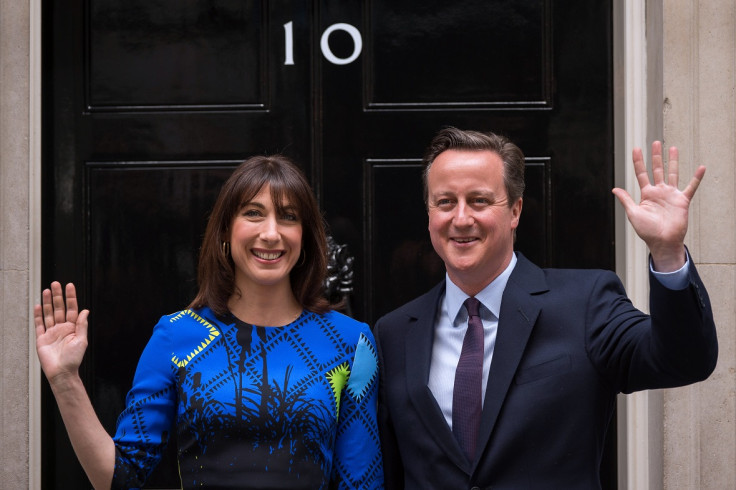David Cameron finalising all-Conservative cabinet in post-election reshuffle

Prime Minister David Cameron is finalising his first all-Conservative cabinet, after his party secured a slight majority in the UK general election on 7 May.
Cameron has already announced that several senior Tories will maintain their cabinet roles.
George Osborne has been re-appointed as chancellor of the exchequer, and also becomes first secretary of state – a post held by William Hague during the last government.
Rt Hon George Osborne MP becomes First Secretary of State and continues as Chancellor of the Exchequer #Ministers2015 pic.twitter.com/EVHo3lgoZm
— UK Prime Minister (@Number10gov) May 8, 2015Theresa May will remain as home secretary. She has declaring "there is more to do and I'm keen to get on and do it," after her reappointment was announced.
She expected to push through a controversial communications bill that was blocked by the Liberal Democrats in the last coalition government.
Theresa May has seen the Prime Minister and continues as Home Secretary @ukhomeoffice #Ministers2015 pic.twitter.com/5FB1f42sRn
— UK Prime Minister (@Number10gov) May 8, 2015Michael Fallon will retain his post at the defence ministry.
Michael Fallon has seen the Prime Minister and continues as Secretary of State for Defence @DefenceHQ #Ministers2015 pic.twitter.com/ognLBkBaxm
— UK Prime Minister (@Number10gov) May 8, 2015Eurosceptic Philip Hammond will stay at the Foreign Office. He said: "I've set out before the election the big challenges I think the Foreign Office has to face over the coming years – the challenge of extremist, Islamist terrorism; the challenge of a resurgent Russia, ever more aggressive in its dealings with its neighbours; and the challenge of renegotiating our relationship with the European Union.
"These will be the big three challenges for this department over the coming months and years and I look forward to getting back into the office and getting on with those challenges."
Philip Hammond has seen the Prime Minister and continues as Foreign Secretary @foreignoffice #Ministers2015 pic.twitter.com/YZGCeSTO9j
— UK Prime Minister (@Number10gov) May 8, 2015Cameron is expected to spend the rest of the weekend assigning the other cabinet positions, and will make more announcements on Monday, 11 May.
Recovering parties
Meanwhile, the other parties are still picking up the pieces following the shock election results, which saw the resignations of Labour leader Ed Miliband, Liberal Democrats leader Nick Clegg, and UKIP leader Nigel Farage.
The parties are now considering who will be able to lead them against the new government.
Shadow Business Secretary Chuka Umunna, Shadow Health Secretary Andy Burnham, and Shadow Home Secretary Yvette Cooper, have been tipped as potential Labour leaders.
Acting Labour Leader Harriet Harman has said that she will stand down as the party's deputy leader, and does not intend to run for the leadership position herself.
Former Lib Dem president Tim Farron, former Health Minister Norman Lamb and former Scottish secretary Alistair Carmichael are seen as possible contenders for their party's leadership.
Nigel Farage has recommended Suzanne Evans to take over as interim UKIP leader. Evans, the party's deputy chair, rose to public attention when she presented Ukip's election manifesto.
© Copyright IBTimes 2024. All rights reserved.





